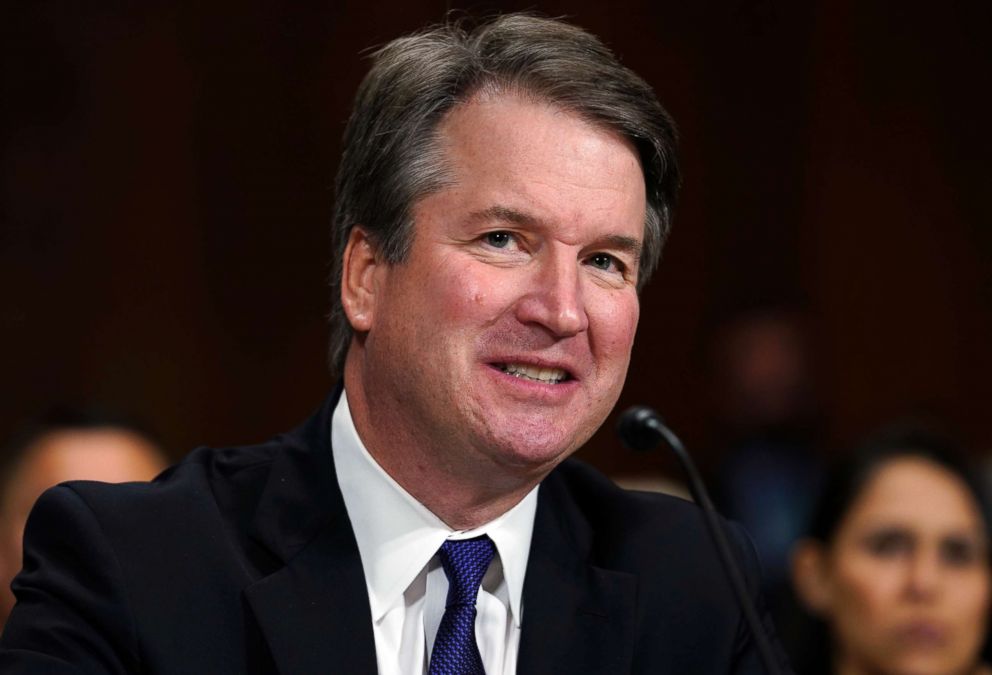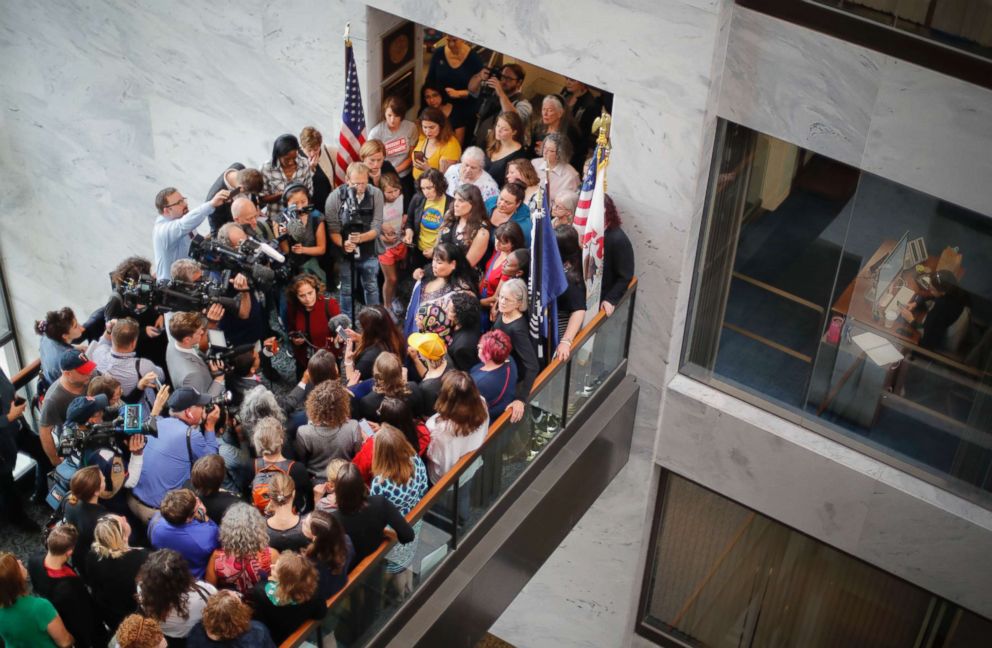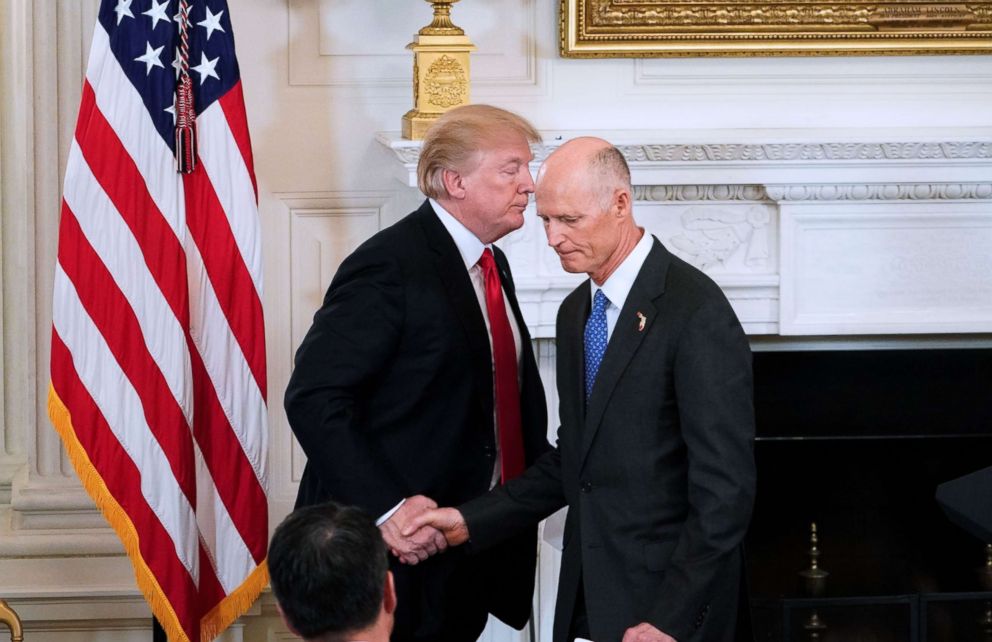The Note: Kavanaugh confirmation scrambles political expectations
We now resume the regularly scheduled campaign. But nothing is quite the same.
The TAKE with Rick Klein
We now resume the regularly scheduled campaign. But nothing looks quite like it did a few weeks ago.
Brett Kavanaugh’s long, strange confirmation battle lasted long enough and took enough surprising turns for perceived political advantages to flip, and flip again.
They land now as a true unknown – Republicans having now delivered for voters who might now remember why they’re Republicans, and Democrats frustrated, and just maybe more motivated, by having fallen short.
It’s dizzying enough for Senate Majority Leader Mitch McConnell to have offered an unusual bit of thanks.
“I want to thank the mob,” he told The Washington Post, “because they’ve done the one thing we were having trouble doing, which was energizing our base.”
McConnell called it “a great political gift for us.” It didn’t always look that way – and it’s an open question whether it can keep giving for another month.

The RUNDOWN with MaryAlice Parks
Monday is Columbus Day, often instead celebrated as Indigenous Peoples' Day around the country and the world.
Native Americans, Native Hawaiians and Pacific Islanders make up slightly more than two percent of the country's population, but their potential political power may be much greater in key states and crucial races this year.
Republican Senator Lisa Murkowski, R-Alaska, was lobbied hard by native people from her state before ultimately breaking with her party and voting against the confirmation of Justice Brett Kavanaugh.
In Alaska, Native Americans, Native Hawaiians and Pacific Islanders make up over 16 percent of the population, according to the Census Bureau.
In Arizona, a state with a closely-watched open Senate seat, those groups of voters make up around 5.6 percent of the state's population.
In New Mexico, a state with a competitive Senate race and tight governor's race, they represent nearly 11 percent.
Restrictive and complicated voter ID laws have contributed to voter suppression in native communities, something Senator Heidi Heitkamp, D-ND, has brought up and fought against.
Energy and land issues have energized native voters and tribes in her state too this year.
But it's not just voters, it's candidates too.
Astonishingly, in our nation's 242 year history, we have not had one native governor or one female Native American member of Congress.
But from Idaho, to New Mexico to Kansas, there are multiple candidates poised to change that and make history this fall.

The TIP with John Verhovek
We're less than 30 days out from the midterms, and Donald Trump is returning to a familiar and critically important place Monday afternoon, the state of Florida.
While the visit is not an official campaign event, Trump's speech at the International Association of Chiefs of Police annual convention comes as GOP Senate hopeful Gov. Rick Scott, who is slated to attend the event even as he is now tending to an approaching storm, still lags slightly behind Sen. Bill Nelson in what has been an epically expensive battle in the Sunshine State.
In contrast to his tepid embrace of Trump early in the campaign, Governor Scott has tempered his criticism of the president in recent weeks, and used the saga surrounding the nomination of Judge Brett Kavanaugh to the Supreme Court as a way to continuously rail against Nelson, calling it a "complete circus."
Scott has spent nearly $28 million in his bid to unseat Nelson, and outside groups on both sides of the aisle have spent northwards of $30 million, in what FiveThirtyEight rates as the sixth most likely race to determine control of the U.S. Senate.

THE PLAYLIST
ABC News' "Start Here" Podcast. Monday morning’s episode features ABC News political director Rick Klein and ABC News political analyst Cokie Roberts, who discuss the lasting effects the Kavanaugh confirmation may have on the nomination process and the midterm elections. https://bit.ly/2Ohkpz8
WHAT YOU NEED TO KNOW TODAY
The Note has a new look! Download the ABC News app and select "The Note" as an item of interest to receive the day's sharpest political analysis.
The Note is a daily ABC News feature that highlights political analysis of the day ahead. Please check back tomorrow for the latest.




